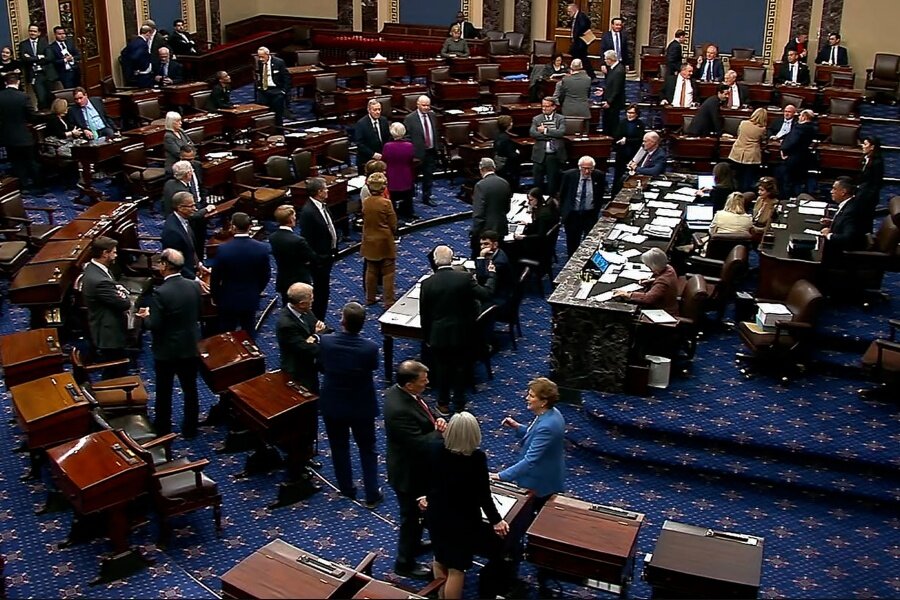The Senate authorized a historic $886 billion in military spending for 2024 following the approval of the annual National Defense Authorization Act on Wednesday.
The crucial 3,000-page bill, essential for approval, garnered robust bipartisan support in the upper chamber, clearing the Senate with an 87-13 vote.
Now it’s on its way to the House, and lawmakers are expected to address it before heading home for the holidays on Thursday.
The Senate, under Democratic control, avoided addressing social issues important to conservative legislators. They opted not to incorporate provisions from the House version of the legislation, passed earlier this year, which included restrictions on abortion access and transgender healthcare treatments for troops and their families.
Senator Tommy Tuberville (R-Ala.) staged a 10-month protest, blocking all military promotions, citing his opposition to a Pentagon policy that reimburses out-of-state travel for service members seeking abortions.
The legislation prolongs Section 702 of the Foreign Intelligence Surveillance Act until April 19.
The surveillance authority, permitting the monitoring of foreigners in the United States without warrants, was scheduled to expire at the end of December.
The bill also includes the most significant pay raise for service members in over two decades, increasing troop pay by 5.2% next year to enhance military recruitment and retention efforts.
The 2024 National Defense Authorization Act (NDAA), outlining the Pentagon’s spending priorities for the fiscal year, also allocates $11.5 billion to counter China in the Indo-Pacific and $800 million in military aid for Ukraine.
“At a time of huge trouble for global security, doing the defense authorization bill is more important than ever,” Senate Majority Leader Chuck Schumer (D-NY) said on the floor ahead of the vote.
“Passing the NDAA enables us to hold the line against Russia, stand firm against the Chinese Communist Party and ensure America’s defenses remain state of the art at all times,” he added.
President Biden has urged Congress to greenlight an extra $61 billion in assistance for Ukraine by the end of the week.
Republicans and Democrats in Congress alike have indicated that the 81-year-old president’s urgent funding request for the war-torn country is unlikely to be approved soon. This is due to GOP insistence that changes to U.S. immigration law be incorporated into the Ukraine-aid bill.
The NDAA bill also contains the necessary authorizations to execute the trilateral AUKUS submarine-sharing agreement among the United States, Australia, and the United Kingdom.
The agreement was forged in 2021 and called for the transfer of three U.S. Virginia-class attack submarines to Australia.
“It will focus the Pentagon more squarely on tackling national security challenges instead of creating new ones with partisan social policies,” Senate Minority Leader Mitch McConnell said of the legislation.
Six Republicans and six Democrats, including Senators Cory Booker (D-NJ), Mike Braun (R-Ind.), Josh Hawley (R-Mo.), Mike Lee (R-Utah), Cynthia Lummis (R-Wyo.), Ed Markey (D-Mass.), Jeff Merkley (D-Ore.), Rand Paul (R-Ky.), J.D. Vance (R-Ohio), Elizabeth Warren (D-Mass.), Peter Welch (D-Vt.), and Ron Wyden (D-Ore.), voted against the bill. Additionally, Senator Bernie Sanders (I-Vt.) also opposed the legislation.
Share your thoughts by scrolling down to leave a comment.













